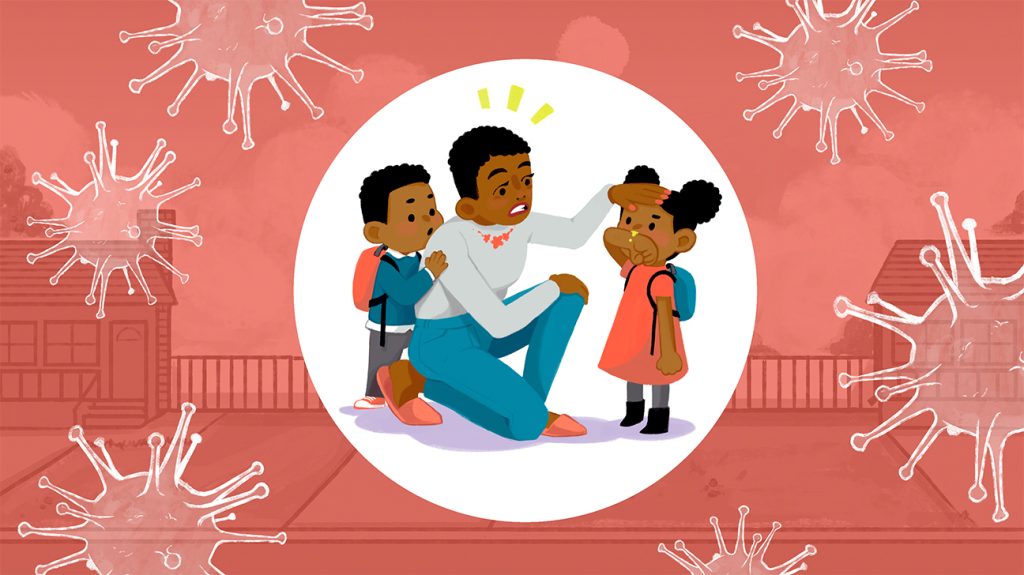Mistakes People Make When They’re Getting Sick
Anytime, wherever, bacteria and viruses can proliferate close to you. Any illness, from the common cold to a serious viral fever, can be contracted when using public transportation or while working in an air-conditioned environment.
Yes, there are readily available medical facilities to help you get better as soon as possible. However, many of us continue to do several blunders that prolong and occasionally exacerbate our illnesses. To fully heal, though, requires both basic awareness and perseverance.

You want to feel better as soon as possible when you are ill. However, some of your habits can be aggravating your symptoms. So that you can continue on the path to recovery, avoid making these typical cold and flu mistakes.
Here are a few of those mistakes that you need to stop making in order to get well soon:
You make an effort to persist.
Don’t continue with your regular schedule. In order to fight off the cold or flu virus, your body needs energy. Give sleep first priority. Refuse to carry out those arrangements and opt to skip work or school. You’ll prevent the transmission of harmful infections while also assisting your body in healing.
You ignore flu symptoms.
A common cold normally doesn’t require a visit to the doctor. But if you get flu-like symptoms like a high fever, body aches, or weariness, you should contact them. They could administer an antiviral medication like zanamivir or oseltamivir (Tamiflu) to you (Relenza). You can lessen your symptoms and cut the length of your illness if you take one within the first 48 hours after becoming ill by 1-2 days.
You sleep too little.
Your immune system will get weakened if you don’t get enough, making it more difficult for you to fight off the infection. According to one study, persons who get less than 6 hours of sleep every night have a four times higher risk of being ill than those who receive at least 7 hours. So, get a good night’s sleep and nap during the day. Do your symptoms keep you up at night? Run a humidifier to help you breathe easier and use some honey to soothe a nightly cough.
You pester your doctor to prescribe an antibiotic.
Your condition won’t improve with the medication. Only bacteria can be killed by antibiotics, however viruses are what cause colds and the flu. Antibiotic prescriptions are unneeded in about one-third of cases. You may be more susceptible to adverse effects including diarrhoea and allergic reactions as a result. Additionally, it helps fuel the major global health issue of antibiotic resistance. When germs become accustomed to the medications, they stop working.
You don’t consume enough fluids.
It’s harder to gulp down liquids when your throat hurts. However, staying hydrated will help you thin your mucus and relieve congestion. Additionally, it prevents headaches. Make sure you get enough water. Drink a warm beverage, such as herbal tea or broth, for additional comfort. According to research, it can lessen cold symptoms like weariness and sore throats.
You don’t eat meals or snacks.
Even if you don’t feel particularly hungry, you should nonetheless eat something. The immune cells that fight off cold and flu viruses will be fueled by calories and nutrients. As a result, you might recover more quickly. Take a bite of some chicken soup. According to research, this timeless song may help with some of those symptoms.
Your eyes shine.
Smoking causes throat irritation and lung damage. Your cold symptoms may worsen as a result. So stop using vaping devices and cigarettes, and avoid being around those who are smoking.
You become stressed.
The immune system is negatively impacted by a hormone your body produces when you’re stressed. Additionally, it worsens inflammation, which can exacerbate your stuffy nose. If you make an effort to concentrate on unwinding and healing, you might get better more quickly.
Overuse of decongestants.
Decongestants can undoubtedly help you feel better and even sleep better, which may help your cold last less time, according to Dr. Burruss. A nasal decongestant could cause problems if it is used for more than one or two days. Topical decongestant nasal sprays, according to Dr. Anagewa, “may produce rebound or exacerbated congestion when used beyond three days.”
Denying your illness to yourself.
If you’ve always believed that you can recover from a cold by using your mind instead of your body, give it up. Presuming you’re healthy might not prompt you to reduce your activities, which could lead to overexertion, which would exacerbate your symptoms and prolong your recovery. Worse? If you go to work or the gym when unwell, Dr. Tan warns, you’re exposing people to your condition. The best advice is to pay attention to your body and give it the rest it requires. And by all means, stay at home if you have a high fever, nausea, an upset stomach, a persistent cough, or considerable nasal congestion and a runny nose.
REFERECES:
- https://symptoms.webmd.com/cold-flu-map/catching-cold-things-to-stop-doing-now?
- https://www.realsimple.com/health/preventative-health/cold-flu-allergies/things-that-make-cold-worse
- https://www.lybrate.com/topic/7-mistakes-you-must-avoid-when-you-are-sick/a4009faec667698863461a07a865f2d9
For more details, kindly visit below.